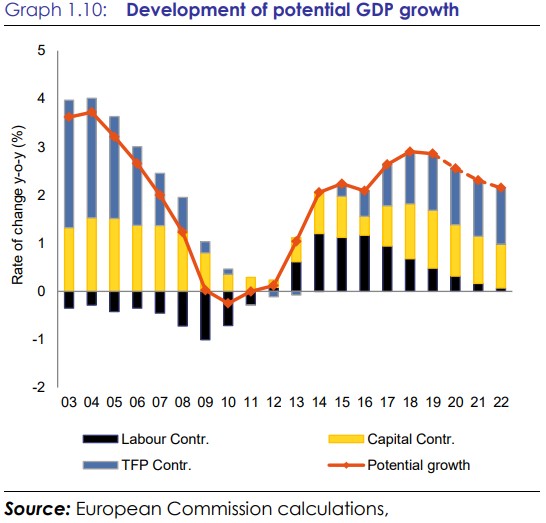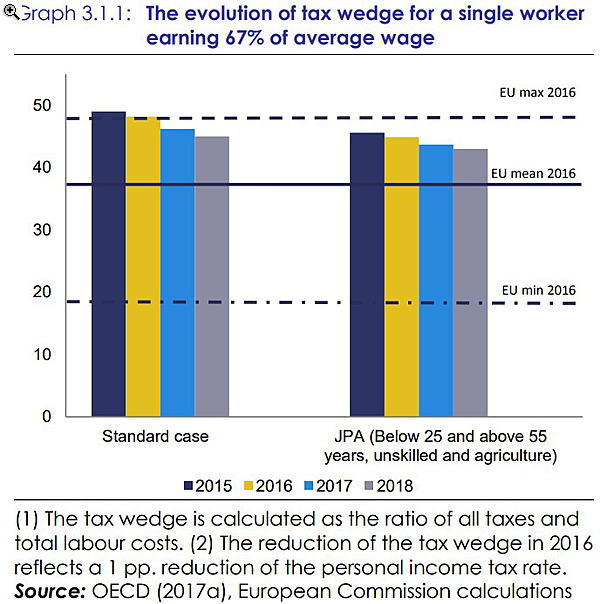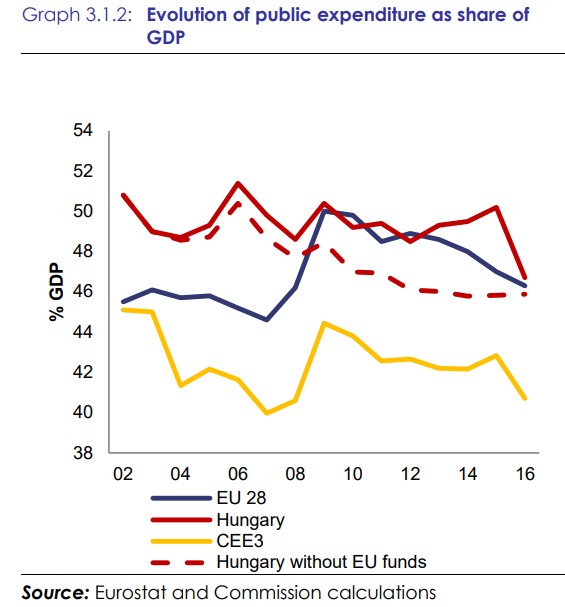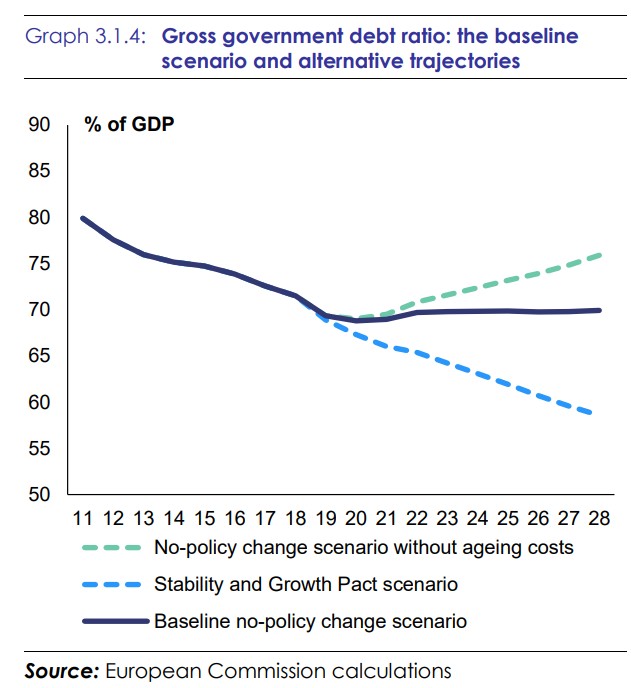Economy
Commission assesses how Hungary fulfilled previous recommendations
Complex tax system
After a temporary lull, the Hungarian economy grew strongly in 2017, employment reached record-highs, bank lending picked up, the fiscal stance is loosening, the EC summed up the key changes.Albeit contained at this stage, risks to a balanced growth path may start to emerge. High capacity utilisation suggests that the economy is now moving above potential. Particularly, labour supply may soon reach its limits, adding to the already considerable wage pressure.
Strong growth is set to continue. Real GDP growth is projected to increase by 3.7 % in 2018, but to slow to 3.1 % in 2019 as capacity constraints emerge on the back of a gradually widening positive output gap. H

- While decreasing, the tax wedge on labour, especially for certain low-income groups, is still high in EU comparison.
- The complexity of the tax system, coupled with the continued presence of sector-specific taxes, remains a weakness.
- Administrative burdens of tax collection are still significant, but considerable efforts have been made to address this.
- Some indicators suggest that Hungary's tax rules may be used by multinationals in aggressive tax planning structures. It is shown by the large capital flows as a share of GDP through special purpose entities, combined with the absence of withholding taxes.

State still too big
Hungary’s public expenditure is high relative to its income level. The government expenditure-to-GDP ratio was hovering around 50% of GDP in the last decade, somewhat above the EU average. EU fund absorption has played an increasing role in shaping the level public spending since 2004. However, Hungary's level of public expenditure remained well above its regional peers even after filtering out the effect of EU funds.
Measures needed to lower public debt
The EC believes Hungary’s debt trajectory could flatten out in the medium term without further fiscal adjustment. According to the Commission's no-policy-change scenario, the public debt ratio is projected practically to stagnate at somewhat below 70% over 2019-2028.It also warned that the debt reduction is hindered by an estimated slightly negative primary balance throughout the nine-year period. The closing of the positive output gap (and thus the cyclical fiscal component) contributes to an increasing primary deficit. However, the deterioration of the primary balance is projected to be moderated by declining age-related public expenditure.
By contrast, if the structural balance was gradually improved to the country's medium-term objective, the debt ratio would fall below 60% by 2028.

To-do list
Hungary faces a pronounced productivity challenge. Productivity growth has been slow for a decade now compared to peer countries. Although potential growth estimates show some recovery, the challenge is becoming more pressing as labour reserves diminish.There are wide and persistent productivity differences between export-oriented, mainly foreign-owned companies and smaller domestic firms, with limited positive spill-overs from the high-productivity segment. The propensity of SMEs to innovate is low and Hungary remains a moderate user of digital technologies. Regulatory barriers in services and retail trade and unpredictability of regulation hamper the efficient reallocation of resources. Institutional weaknesses and human capital inadequacies also constrain productivity growth.
The next warning was made over Hungary’s institutional system.
Weaknesses in institutional soundness and governance could weigh on the country's economic convergence.
- Limited transparency and quality of policy making is a source of uncertainty for investors.
- There are deficits in evidence-based policy formulation and stakeholder engagement.
- Social dialogue structures and processes remain underdeveloped.
- Hungary performs weakly on the accessibility and quality of public information.
- Challenges concerning the functioning of the justice system require close monitoring.
- Available indicators point to notable corruption risks, and there are gaps in the anti-corruption framework.
- Important measures were taken regarding public procurement, but there remains scope to further improve transparency and competition in tendering processes.
The EC also warned that the education and healthcare systems reveal shortcomings in fostering the development of human capital.
- Education outcomes in basic skills are significantly below the EU average.
- The impact of socioeconomic background on education outcomes is among the highest in the EU.
- Disadvantaged students, in particular Roma, remain concentrated in certain schools.
- The health system is faced with high risks from unhealthy lifestyles, uneven quality of care and disparities in access.
- While showing improvements, health outcomes lag behind most other EU countries reflecting also the limited effectiveness of healthcare provision.
- Despite reform efforts, the setup of service delivery remains strongly hospital centred, with weaknesses in primary care and care coordination of chronic disease patients.
“Employment policies face the challenge of mobilising labour reserves fast enough to meet strong labour demand."
Overall, the situation regarding poverty improved notably, but vulnerable groups continue to face high risk of poverty, the Commission concluded.









